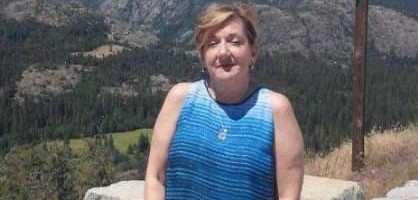In many ways, the heavy trauma of Robin Milim’s life is behind her. The Staten Island, New York, resident, age 66, was diagnosed with HIV in 1985 while using heroin, and she kept on using. Thankfully, she never developed AIDS symptoms despite having a low T-cell count.
She stopped using in 2000 and connected with the large New York City nonprofit Housing Works, which got its start by providing housing and other services to homeless New Yorkers living with AIDS. Not a fan of medications, Milim didn’t go on an HIV regimen until a decade ago, after a bad bout of thrush. Today, a grandmother of four, she’s the special projects coordinator for Housing Works and leading a heroin-free life.
Until, that is, the COVID-19 pandemic struck. Suddenly, like many people, Milim found herself working from home with only her husband and dogs around, cut off from the daily interaction with colleagues she hadn’t realized had been so sustaining for her. “The key to recovery is community and connection,” she says. “Take that away, and what do you have?”
In her case, she says, only “stress, anxiety and isolation.” Having an enclosed backyard in which to set free her French bulldogs, Rocky and Lily—and thus no need to walk them, even though the beach is nearby—meant her movement was reduced to walking between the bedroom and the living room. Her diet devolved into snacks like bags of chocolate-covered pretzels.
And then one day, she decided, just to relax a little, to take one of the Oxycontin a friend had given her. Then, she was taking one every day. “I had a job; I could work from home, so I thought, Why not?” she recalls. She then made a few calls and found a new source for heroin. “I don’t really even understand how this happened,” she says—underscoring how, for those with a drug-using history, the habit can insidiously creep back into one’s life after having been kept at bay for years.
But instead of the old relaxing high Milim remembered, she experienced the opposite. “Despite being high, I could’t get out of my head—I was more worried,” she says. “I actually lost it and had a breakdown, crawling out of my skin. It was very strange.”
After a few months of using, she couldn’t take it anymore. With her husband’s help, she found a detox center in New Jersey that, once she’d come off heroin with the help of the drug buprenorphine, urged her to go to rehab. “I didn’t need that,” she says. She went home and started simply by telling her family and her boss what had happened. “I knew I had to tell people, and they were nothing but supportive,” she says.
Since then, she says, every day has involved “a totally conscious” effort to take care of herself as she continues to work from home. For the time being, she’s decided to put off trying antidepressants or antianxiety medications, even though she’s looking into therapy, which many folks in the COVID age are doing virtually.
In the meantime, she and her husband have set an exercise goal of taking Rocky and Lily out for a beach walk at least once a day, and she has also told a few close neighbors that she needs walking companions.
She’s also making efforts to eat well. “Every day now,” she says, “my husband will ask me, ‘What did you eat today?’” Ironically, after her 30-pound weight gain during the early days of COVID, her weight went back down during the months when she used heroin again. “Sometimes just the thought of eating made me nauseous,” she recalls of that period.
To prevent any future weight gain, she’s trying hard to eat lean protein (chicken, fish) and fruits and vegetables, although she admits her favorite food is high in carbs. “I could live on bagels,” she laughs. Fortunately, she has a more nutrient-rich go-to: “I can always eat a baked potato with some butter and sour cream.”
Mostly, says Milim, she has realized how, for her and others, the past two-plus years of COVID have caused a kind of subtle trauma, removing from our lives the movement and connection we didn’t even realize we relied on. “I don’t think people realize how dark it was and how it affected us,” she says, “because most of us just need to put one foot in front of the other and deal with work, families and pets.”
It’s important, she says, that we not just move on from COVID but also create the space to talk about how it impacted us and what it took away from us. “Most of us,” she says, “have not had the chance to do that. We have to remember that, for a long time, there was no end in sight.”







Comments
Comments